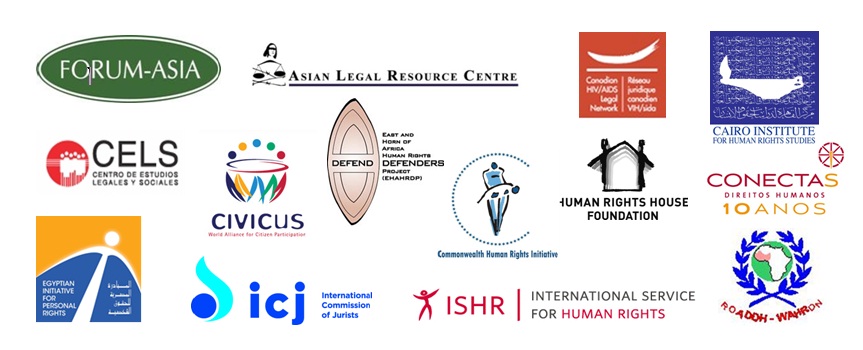
Human Rights Council General Debate Item 5 – 17 September 2012
Check against delivery.
This is a joint statement on behalf of Asian Forum for Human Rights and Development (FORUM-ASIA), Asian Legal Resource Centre, Cairo Institute for Human Rights Studies, Canadian HIV/AIDS Legal Network, Centro De Estudios Legales Y Sociales (CELS), CIVICUS, Commonwealth Human Rights Initiative, East and Horn of Africa Human Rights Defenders Project, Egyptian Initiative for Personal Rights, Human Rights House Foundation, International Commission of Jurists, International Service for Human Rights, and West Africa Human Rights Defenders Network.
Madame President,
We welcome last week’s landmark panel on the issue of reprisals. Focused attention to this issue was long overdue. It strongly affirmed that reprisals and intimidation against those who seek to cooperate or have cooperated with UN human rights mechanisms are simply unacceptable. We are encouraged by the strong rejection of such practices by States from many regions, and the recognition that States are responsible to end reprisals; not only for the sake of protecting individuals from harm, but also to safeguard the integrity of the UN.
The report of the Secretary-General we are discussing today is also an important step forward. Let us highlight three key achievements:
- The SG highlights that reprisals can take various forms, including harassment, intimidation and violence, but may also include arbitrary refusal or termination of consultative Status by member States of the ECOSOC NGO Committee.
- The report makes clear that the cases contained therein are but the tip of an iceberg of yet unknown dimensions. The SG also highlights that cooperation can mean many things, ranging from simply learning about avenues for using the UN human rights system, to sustained engagement on a regular basis.
- Third, the inclusion of follow-up affirms the need to ensure that old allegations of reprisals do not drop off the radar. This last point is also among the areas most in need for improvement.
Madame President,
While the panel and the latest SG report are positive steps, ending reprisals requires more action, political will and creative responses by all stakeholders. As the NGO statements last week have sadly demonstrated, there is no time to lose. It is crucial to maintain pressure on States that commit or tolerate reprisals. Let us therefore highlight three steps that can be taken immediately by those in this room, today:
- Delegates from States concerned are urged to inform the Council through its president and on an ongoing basis of steps taken to protect individuals mentioned in the report and provide remedies and reparations. This should not take away from the annual dedicated discussion we hope to see when the SG’s report is published, but should allow between-session follow-up and concrete protective action.
- Each opportunity for bilateral and multilateral dialogue must be used to raise cases of reprisals as documented in the SG’s report and discuss follow-up. This must include the upcoming UPR review, but also the elections to the Human Rights Council in the GA in November, and could be assisted by an online and regularly updated registry of allegations of intimidation and reprisals, as proposed by several of the panellists last week.
- Finally, individual Ambassadors in Geneva, and in embassies around the world, must prioritise protection for human rights defenders including those who cooperate with the UN human rights mechanisms. This should be done in close coordination with all stakeholders involved in protecting human rights defenders, including UN, regional and national actors.
I thank you.
Share this Post
